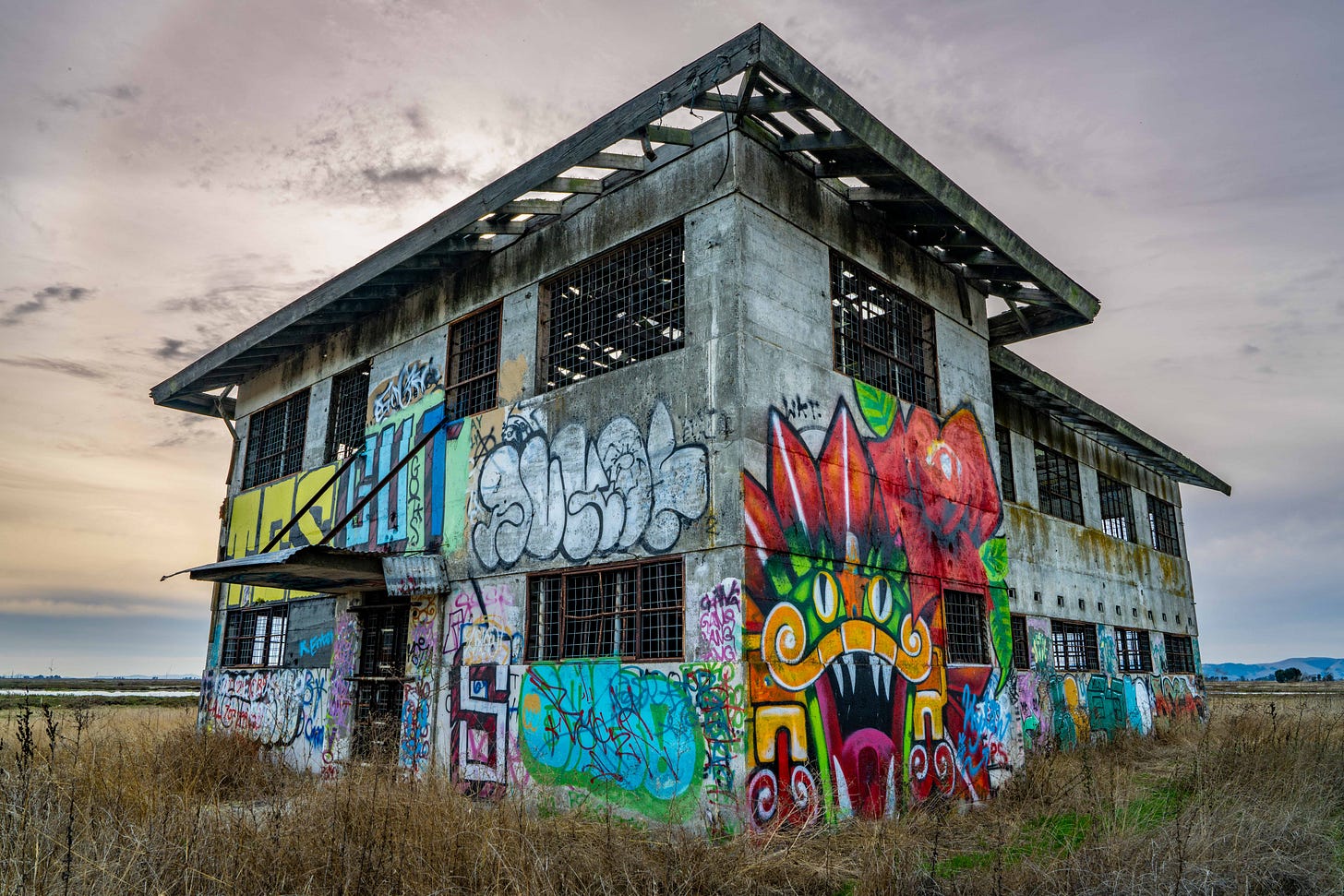Sunday E-dition: Alternate perspective
By Tim Carl
NAPA VALLEY, Calif. — Although the long-term perspective may look strong, if the data are correct, we are headed for five to 10 years of challenging times. As the world transitions from a globalized economy to a regional model and as environmental, climatological, demographic and technological shifts upend the way things have been done for the last 40-plus years, the survivors will be those who can quickly adapt and embrace this rapidly changing landscape. We will all need each other more than ever.
As in any crisis, Americans, in particular, have shown how they can rally on the same team, rejecting petty differences and hyperbolic opinions, and come together to respond to threats and solve challenges. We demonstrated this unity during the Revolutionary War, the Civil War, World Wars I and II, the Great Depression, the race to the moon and the aftermath of 9/11. We also exhibited signs of this resilience during the pandemic and recent political upheaval. But this ability to come together is becoming more difficult.
Somehow we have been convinced that living in a society or community is akin to playing on a sports team. We’ve been pummeled by the constant drumbeat of us and them — that one side needs to win and one side must lose. But although that works in sports, such a model does not work in society, where the winners and losers are inextricably linked.
As a Ph.D. scientist who has studied and had a fascination with the process and results of evolution, I have always been completely confused by the misrepresentation of Darwin’s theory of evolution as “survival of the fittest.”
Darwin's theory of evolution, as presented in "On the Origin of Species" (1859), is fundamentally about natural selection, which implies that organisms with traits better suited to their environment have a higher chance of surviving and reproducing. Over time, these advantageous traits become more common within the population. However, the popular phrase "survival of the fittest," coined by Herbert Spencer, grossly oversimplifies Darwin’s ideas. This misinterpretation suggests teams and brutal competition where only the strongest individuals or groups survive and reproduce, neglecting the importance of cooperation, the contextual nature of fitness, and the role of genetic diversity and enormous spans of time in evolution. It also paved the way for harmful ideologies such as social Darwinism, which unjustly applies the idea of natural selection to justify social inequality, a notion never implied by Darwin himself.
Modern evolutionary science further clarifies that Darwin's theory is much more complex than "survival of the fittest." It encompasses additional concepts like genetic drift, gene flow and mutation, highlighting that evolution is not a simple progression toward "fitness" but a multifaceted process influenced by various factors.
But there are those who cling to this belief, which is now often at the very heart of the way we think and behave.
I am thinking about all this because of our requirement to include the alternative perspective in our letters to the editor. First, we’ve only received a few letters so far, with all but one restating their original position (most in support of one political candidate or another) as their alternative perspective. When reminded of the requirement to provide an alternative perspective that someone on the other side would look at and say, “Well, that sounds reasonable and fair,” we’ve received the following responses.
“I will not provide you an alternative perspective.”
“I don’t think it would be right to provide it.”
“I don’t know the alternative perspective.”
To be clear, these are all reasonable and understandable responses. Given our current state, even entertaining the other side’s point of view sometimes feels like a betrayal — a statement that suggests you are playing for the other team, on the other side.
But what if we could spend even a few moments pondering the alternative from their perspective? What if we talked to those with opposing views and listened to their answers? What then?
A narrative that has taken over says there are teams and that there’s an underlying reality of competitive survival. This is not only false but counterproductive. In great times when everything is booming, such false narratives can be overlooked. However, during challenging times, such falsehoods can hinder the actual solution to the problems we face. The future will likely be one where sacrifice and changing our behaviors and approaches will be the driving forces behind our success. We’ve done this before. We can do this again. One small step is to include the alternative perspective in your letters to the editor. We hope to see many such letters in the future.
Last week
Last week we shared insights in "The year ahead," which chronicled the rapid transformation of a nascent idea of Napa Valley Features into a vibrant hub for more than 2,700 subscribers and more than 30 contributors. We detailed the mission to create a hyper-local platform that counters the decline of traditional journalism with a subscriber-supported, ad-free model, emphasizing the importance of a balanced narrative for the community. Reflecting on the growth, we also highlighted how the platform is not only a local news source but also a mirror to broader global trends, fostering innovation and a deeper community connection.
David Layland offered guidance in "Now is the time to select bare-root trees," outlining the benefits and considerations for planting bare-root fruit trees in Napa Valley. He emphasized cost efficiency, understanding chill hours and the importance of pollinators for a successful harvest.
John Dunbar's "Napa Valley's newest tequila producer, Casa Obsidiana" highlighted the valley's expanding beverage scene, detailing the venture of vintner Jean-Charles Boisset into premium tequila production. The article explored how Napa's winemaking expertise, including climate and terroir, is being applied to tequila, resulting in unique flavor profiles and innovative production methods. Dunbar also noted the broader trend of Napa Valley's wine professionals diversifying into the tequila market, showcasing the region's evolving palate and craftsmanship.
We also explored "Is the wine boom over?" by delving into the shifting dynamics of Napa Valley's wine economy and exploring the impacts of an aging population, changing tastes and economic uncertainties on the once-booming industry. I highlighted the potential consequences of these changes, including declining luxury wine consumption and increasing competition, and I emphasized the importance of innovative adaptation for the region's future. My analysis paints a picture of a wine industry at a tipping point, facing the need to evolve amidst a complex web of demographic and economic challenges.
The "Stargazing in Napa Valley" illuminated the upcoming celestial events of 2024, from meteor showers to planetary dances. The article offered a month-by-month breakdown of what to watch in the night sky, including tips for the best viewing experiences and reminders of nature's cyclic beauty. The piece is a call to all to gaze upward and witness the grand theater of the cosmos from the serene backdrop of California's Wine Country.
Next week
Dave Stoneberg will write about the late David Stevens and his role in making Hourglass winery what it is today, while I will serve a double helping of insights, first by forecasting the 2024 Food and Wine Trends that are set to tantalize our palates and then by exploring the provocative notion that AI might be on the verge of revolutionizing our workplaces. Sasha Paulsen tells me she has a great story to share, too. Can’t wait. Additionally, a special new contributor will delve into the critical question of whether Napa Valley is "too big to fail," examining the region's resilience and future in an ever-changing world. Join us next week for these compelling narratives and discussions.
Tim Carl is a Napa Valley-based photojournalist.







Thank you for your thoughtful essay on the importance of knowing about, considering, and engaging respectfully with those who hold "alternative" perspectives. A tough, but essential assignment for us all.
I loved reading this. The concept of holding an alternate perspective creates safety. Safety allows for creativity, clarity, compassion, collaboration, etc. Besides, we cannot positively impact that which we have contempt for.